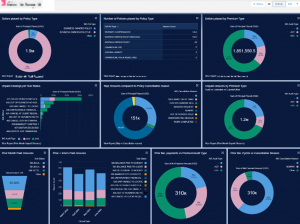Debt collection can be a taboo subject.
There’s a lot of misinformation about debt collection floating around the internet, so we’re here to set the record straight.
Here are the 8 biggest debt collection myths busted:
Myth | You can pay the original creditor instead of the debt collector.
Other companies hire debt collection agencies to collect for them, called third-party agencies. Or, they sell their debt to a collection agency, meaning the original creditor no longer owns the debt.
Either way, the collection agency is contacting you for a reason and you cannot bypass them.
The good news is, however, that most collection agencies make it as easy as possible to pay back a debt. Most offer several payment options, like an online payment portal or a payment plan.
Myth | Debt collections won’t impact your credit score if you pay it.
When a debt goes into collections, it has most likely already negatively impacted your credit score. When you refuse to work with a collector, it can cause further damage. It’s best to pay your bills on time and avoid collections altogether, but if you are contacted by a collector, just cooperate and pay or explain your situation.
It’s a collector’s job to resolve the debt, so they are most likely willing to work with you and figure out some options for how you can pay the debt.
Myth | If you avoid collectors, they’ll go away.
Avoiding collection calls will only make the situation worse and damage your credit score. Plus, collectors can help by giving you options to repay your debt. It’s best to cooperate with collectors and try to explain your situation.
Myth | The Fair Debt Collection Practices Act protects all debtors.
According to Investopedia, the Fair Debt Collection Practices Act (FDCPA) is “a federal law that limits the behavior and actions of third-party debt collectors who are attempting to collect debts on behalf of another person or entity.”
In short, the FDCPA protects debtors from abusive, unfair or deceptive debt collectors.
However, the FDCPA only protects consumer debtors, not commercial debtors.
Although there are currently no federal laws controlling commercial debt collection, most states have statutes which govern commercial debt collection.
Myth | Smaller debts don’t go into collections.
While some agencies don’t bother with smaller amounts, others specialize in collecting smaller amounts of debt because it can add up over time to create good revenue.
There’s no way to tell if a debt will go into collections or not.
Basically, anything can go into collections and harm your credit score. It’s best to just pay what you owe.
Myth | Debt collectors only care about getting your money.
Debt collectors’ jobs are to resolve the debt, not just collect it.
They will work with you on payment plans, recommend programs to get out of debt.
So, if you’re contacted by a debt collector, see what your options are and what they can do to help.
Myth | Hiring a collection agency is expensive.
Most collection agencies operate on a contingency-fee basis, meaning if they don’t collect, you don’t pay. Others will charge a flat fee.
When you hire a collection agency you are hiring experts who can increase their sales by collecting more money for their customers.
Myth | Businesses that use collection agencies lose customers.
If you choose a good collection agency, you won’t lose customers. This would only be the case if the agency uses illegal tactics to collect a debt, like threats or harassment.
For tips on choosing the right collection agency to fit your needs, click here.





